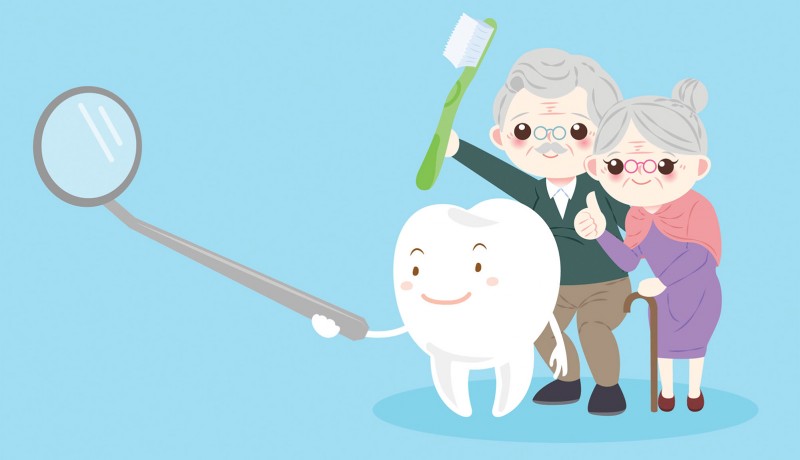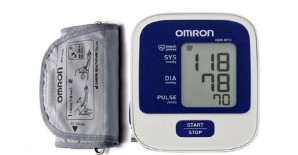
Health

The right dental care and timely intervention can help silvers maintain good oral hygiene, says Dr Rajesh Koppikar, consultant-dental surgery, Kokilaben Dhirubhai Ambani Hospital, Mumbai
With increasing age, maintaining oral health can often be a challenging task. However, better at-home care and in-office dental treatments in the past few years have resulted in more silvers retaining their teeth throughout their lives. Although some conditions do make dental diseases and tooth loss more likely, silvers can still have a good deal of control over oral health. Remember, some extra care and a few precautions will keep you smiling even at 60.
Here’s a look at some dental concerns in silvers and their solutions.
DENTAL CAVITY
As you get older, the enamel—the outermost layer on the teeth—becomes thinner, making your teeth prone to plaque formation and cavities. You may also notice some gaps between your teeth, which are a result of the natural ageing process where the gums (gingiva) recede from the teeth, leaving spaces in between. Food tends to stick in between these spaces, thus causing cavities. The best defence is to remove plaque daily before it gets a chance to build up and cause problems. Brushing removes plaque from the teeth and, if done correctly, from just under the gums also.
We all learned to brush our teeth as kids and have mostly retained the same technique throughout our lives. Unfortunately, many of us have learned the wrong way of brushing. As for those who learned the right way, it’s easy to become sloppy over the years. Brushing correctly isn’t instinctive. Getting the bristles to remove plaque without damaging your gums is a little trickier than you might think. There are different ways to brushing. Consult your dentist who will recommend the brushing method for you.
Tips for brushing right
Brush twice a day: Dentists recommend brushing just before going to bed. When you sleep, the saliva in the mouth decreases, leaving your teeth vulnerable to bacterial acids. Teeth should also be brushed in the morning, either before or after breakfast. After breakfast is ideal so that food particles are removed.
Brush lightly: Brushing too hard can cause your gums to recede. Plaque attaches to teeth like jam sticks to a wooden spoon. It can’t be totally removed by rinsing but just a light brushing will do the trick. Once the plaque has hardened into calculus (tartar), brushing can’t remove it, so brushing harder won’t help. Try holding your toothbrush the same way you hold a pen. This encourages a lighter stroke.
Brush for two minutes: Set a timer if you have to, but don’t skimp on your brushing time. Longer is fine, but a minimum of two minutes is needed to adequately clean your teeth. Many people brush till the length of a song on the radio. It’s a good practice and acts as a reminder to brush each tooth thoroughly.
Maintain a standard routine: Try to brush your teeth in the same order every day. Oral health professionals believe this helps patients remember to brush all the areas of their mouth. If you do this routinely, it will eventually become second nature. For example, you can start by brushing the outer sides of your teeth from left to right across the top then move to the inside and brush right to left. Repeat the pattern for your lower teeth.
Choose softer bristles: Always use a toothbrush with ‘soft’ or ‘extra soft’ bristles. The harder the brush, the greater the risk of harming your gum tissue.
Change your toothbrush regularly: As soon as the bristles begin to splay, the toothbrush loses its ability to clean properly. Discard your old toothbrush after three months or when the bristles flare, whichever comes first. If you find your bristles flaring much sooner than three months, there are chances you may be brushing too hard.
Try an electric toothbrush: Electric toothbrushes are a good alternative to manual brushes, though not necessary. They are useful for silvers with physical limitations that make brushing difficult. However, make sure you choose softer bristles and don’t press too hard or you’ll damage your gums.
Choose the right toothpaste: It can be overwhelming to come across a large number of toothpastes in the supermarket. Remember, the best toothpaste for you may not be the best one for someone else. So always check with your dentist before making your choice!
Go by your doctor’s advice: Toothpastes don’t merely clean your teeth. Different types have specific ingredients for preventing decay, gum care or desensitising teeth. Talk to your doctor first. He may recommend additional tools called inter-dental cleaners, if you have large spaces between your teeth.
DRY MOUTH
Dry mouth indicates that you do not have enough saliva or spit to keep your mouth moist. Everyone gets the feeling of dry mouth once in a while, especially when feeling nervous, upset or under stress. But if you have a dry mouth all or most of the time, it can be uncomfortable and lead to more serious health concerns or indicate a more serious medical condition. This may also be owing to non-functioning of salivary glands, which is a serious condition. This is because saliva does more than just keep the mouth wet—it helps digest food, protects teeth from decay and makes it easy to chew and swallow.
Symptoms of dry mouth
- Sticky, dry feeling in the mouth
- Trouble swallowing
- Burning sensation on tongue
- Dry feeling in throat
- Cracked lips
- Reduced ability to taste things/metallic taste in your mouth
- Mouth sores
- Frequent bad breath
- Difficulty chewing/speaking
Causes for non-functioning of salivary glands
Side-effects of medication: Over 400 medicines cause dry mouth, including antihistamines, decongestants, pain killers, diuretics and medicines for high blood pressure and depression.
Common diseases: There are some diseases that affect the salivary glands—diabetes, Hodgkin’s, Parkinson’s disease—and lead to dry mouth.
Radiation therapy: Salivary glands can get damaged if your head or neck is exposed to radiation during cancer treatment. The loss of saliva can be total or partial, permanent or temporary.
Chemotherapy: Drugs used to treat cancer tend to thicken the saliva, causing your mouth to feel dry.
Menopause: Changing hormone levels affect the salivary glands, often leaving menopausal and post-menopausal women with a persistent feeling of dry mouth.
Smoking: Pipe, cigar and heavy cigarette smokers often experience dry mouth.
The only permanent way to cure dry mouth is to treat its cause first. If it is the result of medication, your doctor might change your prescription or dosage. If your salivary glands are not functioning properly but still produce some saliva, your doctor might give you a medicine that helps the glands work better. If the cause of your dry mouth cannot be eliminated, or until it can be, you can restore moisture to your mouth in a number of different ways. There are mouth moisturisers available that act as a saliva substitute. Rinsing with mouthwashes specially formulated to help dry mouth may also bring relief.
Tips to prevent dry mouth
- Sip water or sugarless drinks often
- Avoid drinks with caffeine such as coffee, tea and some sodas, which can cause the mouth to dry out
- Chew sugarless gum or suck on sugarless boiled sweets to stimulate saliva flow (if the salivary gland function exists)
- Don’t use tobacco or alcohol, as it dries out the mouth
- Avoid spicy or salty foods that can cause pain in a dry mouth
- Use a special mouthwash for dry mouth
WEARING DENTURES
Most silvers who wear dentures assume they don’t need to care about their teeth. What they do not realise is that the bacteria sticks to full or partial dentures just like it does on regular teeth! So even if you wear dentures, remember to clean them on a daily basis with cleaners made specifically for dentures. Also, avoid using the same toothpaste or household cleaner you use for your natural teeth, as those are abrasive and can damage your expensive dentures.
Ways to care for your dentures: Take the dentures out of your mouth for at least four hours daily—preferably at night—to keep your gums healthy. Your dentist will provide you with instructions on how long your dentures should be worn each day. Also, visit your dentist regularly for oral check-ups!
Finally, I would recommend that all silvers follow this advice: Age is in the mind, so mind your teeth and gums to ensure you don’t look and feel your age!
When going for a check-up, do carry the following information with you.
|
|---|
Photos: iStock Featured in Harmony — Celebrate Age Magazine September 2018
you may also like to read
-
Hot tea!
If you enjoy sipping on that steaming hot cup of tea, think twice. New research establishes a link between drinking….
-
Weight and watch
If you have stayed away from lifting weights at the gym, thinking it might not be a good idea for….
-
Toothy truth
Research has established a clear association between cognitive function and tooth loss when cognitive function score was categorised into quintiles…..
-
PRODUCT OF THE MONTH
Automatic Blood Pressure Monitor Measure your blood pressure and pulse rate with no fuss Hypertension, or high blood pressure, could….







